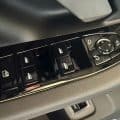Canada announced on Monday that it will follow the US’s lead on imposing 100 percent tariffs on Chinese-made EVs. Tariffs go into effect on October 1, affecting all China-made EVs alongside Chinese steel, which now faces a 25 percent tariff. This spells bad news for Geely-owned outfits Lotus and Volvo – and even Tesla – but it has implications for BMW, too.
At first glance, it’s all good news for BMW. Lotus – who offers the Eletre electric SUV – could be considered a fairly serious competitor to the BMW iX. With similar power and range figures, the two occupy a similar niche. Pre-tariff pricing closely rivals the range-topping iX M60 – each start around $125,000 CAD. Similarly, Volvo offerings like the EX-30 will be affected, although Volvo is tooling up production outside of China to help avoid the tariffs. It’s currently significantly more affordable than most other electric offerings, but that could change when production shifts to countries with higher cost of labor.
There’s another crucial competitor that will be affected – Tesla. Half of all Tesla EVs come from Shanghai – many bound for the Canadian market. The new tariffs would nearly guarantee pricing increases across the board. Considering much of the appeal of Tesla is an approachable price point, that might be enough to sway some customers to considering BMW, who is quickly becoming a leader in the EV space and offering the benefits of a legacy automaker.
Some Challenges for BMW, Too
BMW doesn’t walk away completely unscathed, though. Chinese-produced EVs like the MINI Aceman and Cooper would be subject to the new tariffs. It’s possible the new tariffs will impact BMW’s decision whether or not to bring the motoring icon to Canadian shores. Most likely, both will be delayed until BMW can get production in Oxford optimized. Right now, the plant is focusing only on gas-powered variants.
Of course, there’s a chance Geely and company will simply endure lower profits without passing on the additional costs to customers. That would allow them to at least gain market share by remaining competitive. And Tesla has production facilities worldwide, though it’s unclear if other sites can easily produce Canada-specific vehicles. Both companies will need a solid plan if they want to have a hope of being profitable, in Geely’s case, or enjoy current levels of profitability, like Tesla.







































































